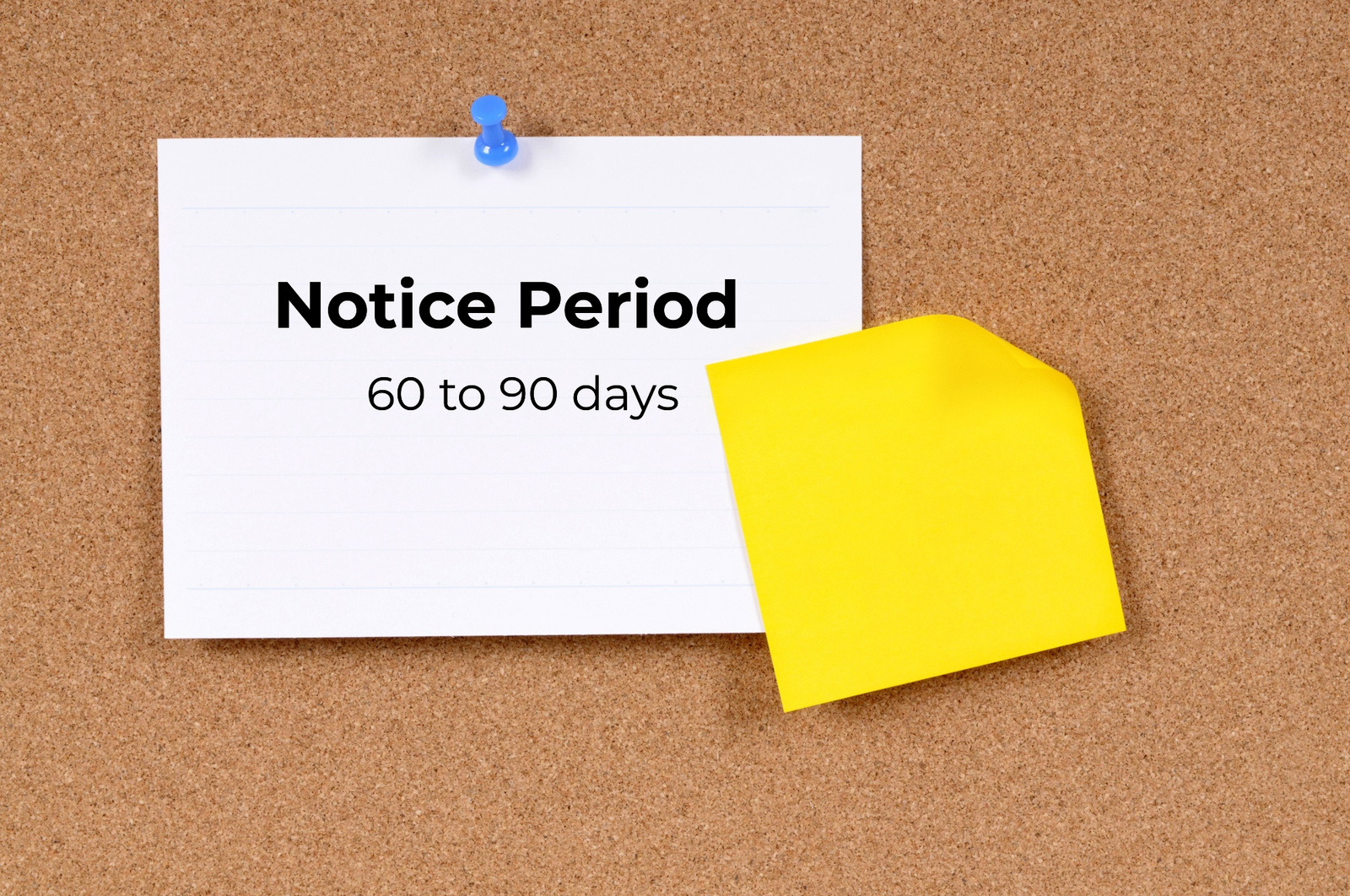Long Notice Periods 60 to 90 Days - is it Truly Necessary or Not? - Part II

Team KritikalHire
November 20th, 2022
In a series of articles, "Long Notice Periods," we wish to gather employers' and employees' input, stories, and experiences. We want to learn more from the Global Recruiting Heads, APAC Recruiting Heads, and India Recruiting Heads. The time is right to speak about the long notice periods when you notice outright war and hostility in hiring the candidates.
The Notice Period can be a double-edged sword, good for some, and in certain situations less helpful or even a hindrance in others. In his article "Notice Periods and Their Value," John Early has covered both employee and employer perspectives. The longer the period agreed in the contract, the more extended the employee has to find a new job without being unemployed. This notice period has the precise reason and benefit to the employer allowing time to find a replacement or implement a continuity plan should a key employee resign, giving comfort and security to the employer.
The longer the notice period, the better theoretically, but this is situational. I leave it to you all to post your opinion, and it's your thoughts that would help many.
Bhargava (2016), in her article “Employee notice period of 60 days - Is it required?”
II mentions: The standard Notice period duration In India, especially in the IT and ITES industry, is 60 days for confirmed employees which is becoming a significant reason for unpleasant employees to exit late.
III She further explains that in some cases, employers/managers use the notice period clause and delay relieving as a vendetta or ego issue with employees who have decided to move on. The purpose of the notice period itself gets defeated since the replacement candidate does not join within these 60 days, so no handover is possible.
In his article "Notice periods: Dos and don'ts," Morgan McKinley states that companies are unsurprisingly reluctant to part with staff in a competitive talent market, especially if they are an integral part of the team. It leads to:
a) three-month notice periods, and
b)"buybacks" are becoming increasingly common.
It creates several problems for organizations. In many instances, a hiring business will:
a) Not wanting to wait for a prolonged period before their new member of staff starts (a lot can change in three months!) having already dedicated so much effort towards finding, interviewing, and offering them the job.
b) Not want to be held ransom and have to pay substantially more on salaries than they initially had offered.
Briefly, we captured notice period dos and don'ts from McKinley's article for an employee to consider, and a few points are summarized below. From the long-term perspective, employees should leave a good impression with the organizations where they collect multiple offers and now avoid speaking with employers where they do not wish to join.
1. Do: Know your contract
When you are at the interview stage, it is essential, to be honest about your notice period and not make false promises to start on a specific date when you are not 100% sure.
Convey the correct notice period information to the new employer
Be aware of post-termination restrictions, such as which clients you can or cannot work with after leaving the job.
2. Don't: Think that money is everything
It is widely recognized that most people do not wish to move jobs solely because of money.
Professionals change roles for a plethora of reasons; flexibility, better benefits, or progression opportunities, to name just a few.
If you find yourself with a counteroffer from your present employer, always ask yourself, "Why has it taken until now for them to offer me a higher salary?"
3. Do: Consider the viewpoint of your employer
It would be best if you considered that your employer might be surprised or upset at your leaving, not to mention the possible headaches involved with hiring your replacement.
The more help that you give at this point will potentially result in your notice period being reduced.
4. Do: Properly approach an earlier exit negotiation
If you enter a negotiation with your employer about reducing the length of your notice period, remember these key four things:
Do it in writing and stipulate a planned leaving date.
Check how many holidays you have left and use this to reduce your notice period.
Be gracious and professional right to the end, as this will serve you better in the long run - especially for future unexpected run-ins with ex-colleagues!
Provide detailed handover notes, including work and projects that need to be handed over to the correct people and how long it will take you to complete any existing work.
5. Don't: Panic if your negotiation is unsuccessful
Do not give up hope if you cannot secure a faster exit than you may have wanted. Keep your manager posted daily on the completion of tasks, and if you are on track for completion sooner than expected, you can always put in another request for early release.
6. Do: Be honest in your exit interview
Try to offer constructive advice but be open and polite. Remember, you never know when you will cross paths with former employees in the future, so professionalism to the end, no matter the situation, is a must!
Reference:
I Early. J ( February 18, 2016) Notice Periods and Their Value|https://www.linkedin.com/pulse/notice-periods-value-john-earley
II Bhargava. R (June 7, 2016) Employee notice period of 60 days - Is it really required?|https://www.linkedin.com/pulse/employee-notice-period-60-days-really-required-ritu-bhargava/
III "Notice Period: Do's and Don'ts," Morgan McKinley's Resource Hub|https://www.morganmckinley.com/article/notice-periods-dos-and-donts
Subscribe
The best recruitment industry articles served daily, directly in your inbox.




